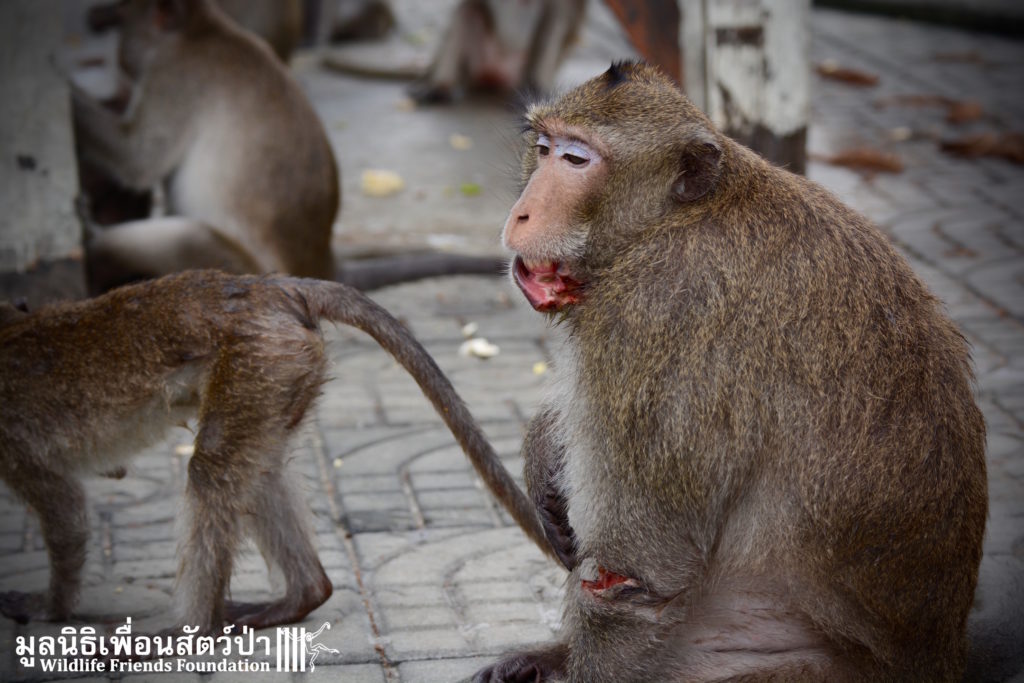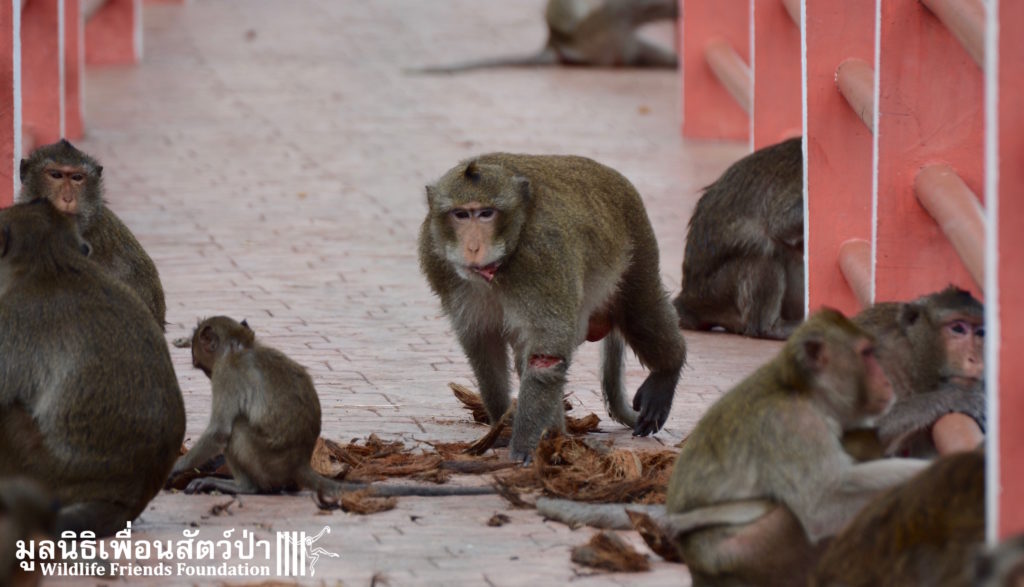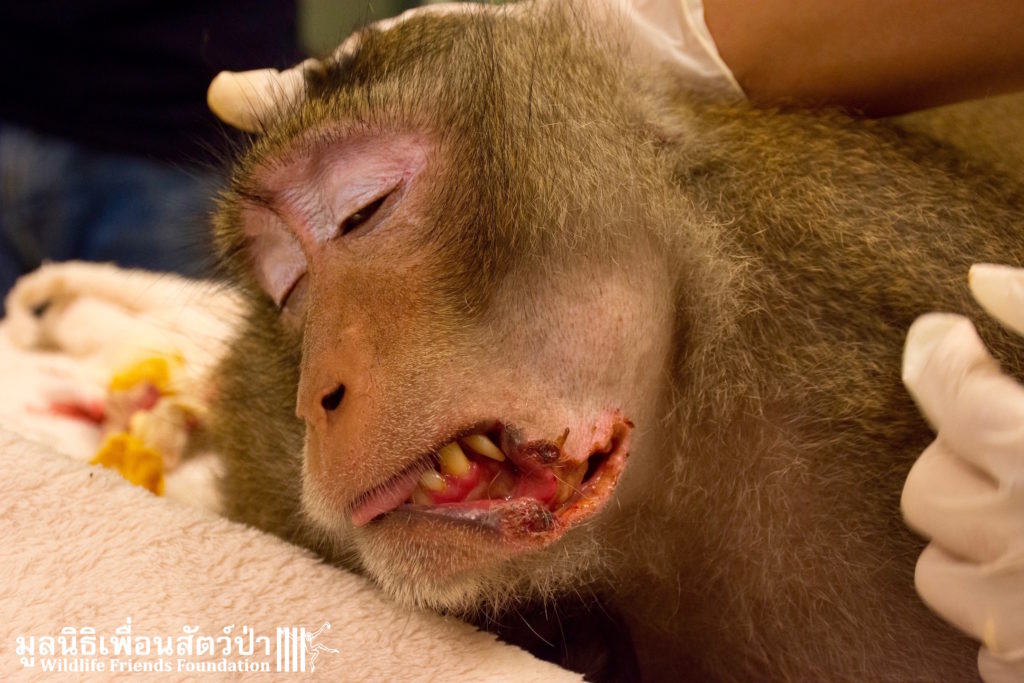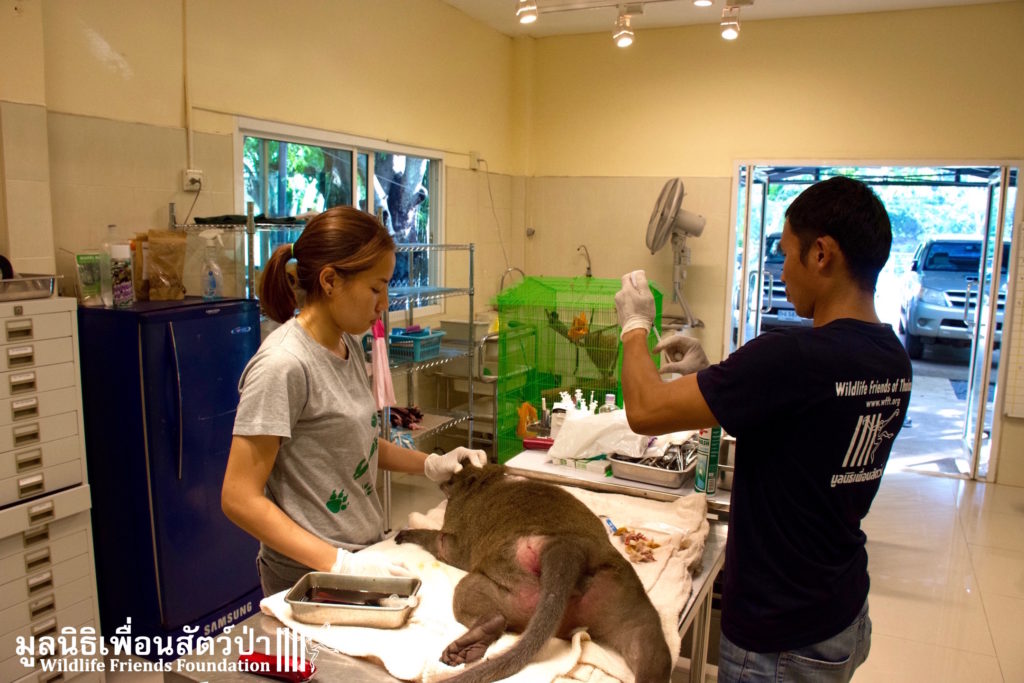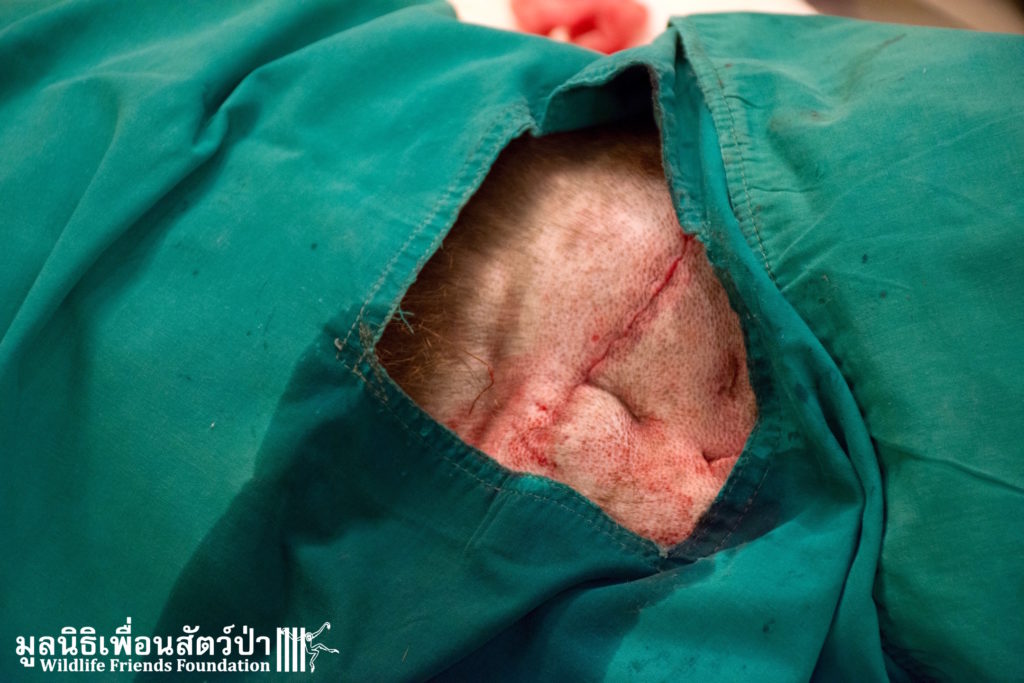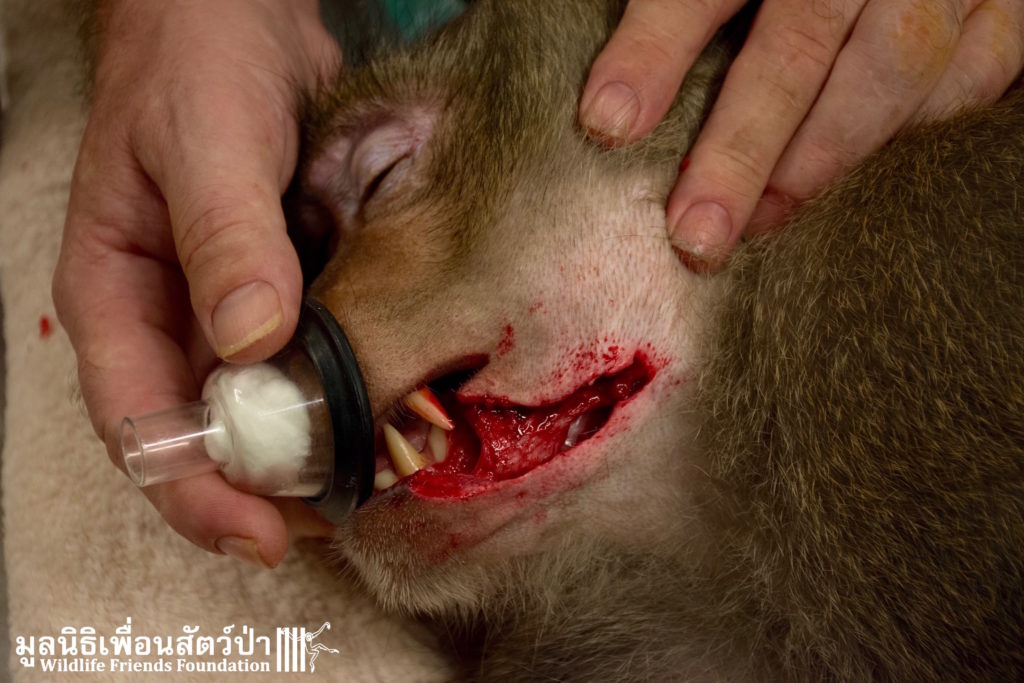We are pleased to announce the rescue and safe arrival of Heart, a white-handed gibbon who is more than 40 years old and missing her lower arms and hands.
Knife Attack Long-tailed Macaque Rescued
A friend of WFFT called us about a severely injured macaque that she had seen in an area close to Bangkok where she helps care for a large group of urban macaques. The monkey in question was covered in wounds and in need of emergency medical treatment. The WFFT Rescue Team headed out immediately to help this adult male long-tailed macaque (Macaca fascicularis). Upon arrival to the scene the team were shocked to see the monkey had large gapping wounds over many parts of his body. After capture the macaque was taken immediately back the WFFT Wildlife Hospital further inspection and medical treatment.
It appears that this rather large male macaque has been involved in a human-wildlife conflict incident as the size, shape and depth of his wounds indicate that a weapon of sorts has been used, a knife or machete are the likeliest weapons. Habitat loss and degradation resulting from rapid human population expansion forces such macaques to live in hazardous conditions often near busy roads or highly urbanized/industrial areas creating multiple threats from vehicles, power lines, human-wildlife conflicts, without sustainable natural food sources they often depend on the goodwill of certain members of the public or NGO’s to provide food and medical assistance.
The long-tailed macaque is listed as Least Concern (LC) by the IUCN Red list of Threatened Species, in view of its wide distribution, presumed large population, tolerance of a broad range of habitats, occurrence in a number of protected areas. Habitat loss and degradation due to human encroachment, pose the biggest threat to all macaque species. They are regularly persecuted as pests. Increasing competition between macaques and humans due the increase in need of land for agriculture and other human activities is the foremost reason that macaques are persecuted as pests. Hostile encounters with macaques are common in urban areas due to the active promotion of their presence for spiritual and entertainment purposes by provisioning food for the macaques. We (humans) both promote population growth through the provision of food and the protection habitat, and on the other hand we hinder it through the continued fragmentation of habitat, capture and exportation for research, and the pet-trade.
The big boy has been named ‘Bubba’. The WFFT Vet Team were straight to action when Bubba arrived at our hospital, cleaning and stitching the terrible wounds. Luckily Bubba is a strong and healthy, although he is a little over weight (weighing in at 15KG, impressive for a long-tailed macaque) so we hope that he will make a quick recovery and be returned back to his family soon. While we don’t support his daily living conditions, it is where he has made his home and family, it would be difficult to integrate him into a new group. We will update you on his progress.

